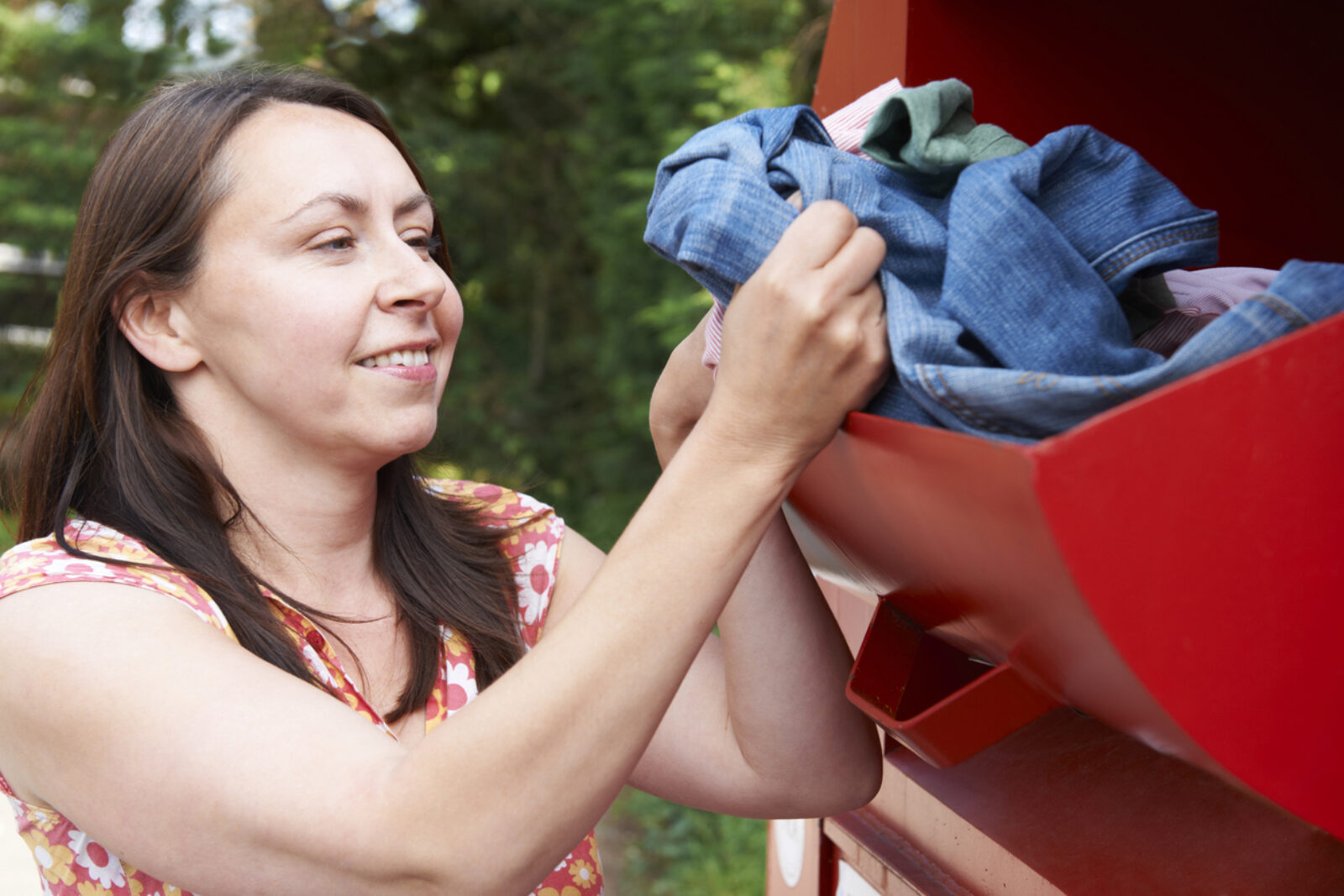Textile recycling solution
The textile industry takes control of recycling

Joining the circular economy is no easy matter for many Swiss textile and garment companies. Admittedly, the industry is developing new and more sustainable materials and products; and looking for new business models to assure their rational reuse. The problem: there is no industry-wide recycling solution to permit central regulation of costs, processes and communication. Companies are now joining forces under Swiss Textiles to define collaborative pathways.
The EU published its new textile strategy in March 2022. This imposes more stringent requirements on manufacturers. In future, they are expected to take responsibility at every stage of the supply chain. The companies that manufactured or marketed a product will therefore remain responsible for their materials even after the sale. In brief, extended producer responsibility (EPR) has been incorporated into waste legislation.
A system of that kind could also work for textiles and would make it far easier for companies to join the circular economy.
Retaining control over quantity, material quality and costs
Could extended producer responsibility of the kind stipulated by the EU likewise be applied to the Swiss textile industry? And if so, what form would it take?
The people at Swiss Textiles are convinced: “A system of that kind could also work for textiles and would make it far easier for companies to join the circular economy,” in the words of its sustainability expert, Nina Bachmann.
The Swiss industry association and a group of private companies, organisations and representatives of political circles are now looking into ways and means. They aim to arrive at a voluntary industry-wide solution of the kind with which other industries are already familiar. The whole process would be jointly financed and centrally regulated: from taking back, sorting and reuse to repair of textile materials on the Swiss market. To that end, the industry would have to accept responsibility for the system and arrange its uniform application throughout Switzerland.
In Switzerland, the electrical and electronic devices and PET beverage bottle industries are already familiar with a system of this kind.
Swiss Textiles believes that it could cooperate with collection and recycling organisations that already operate on the market. For instance, with potential clients for recycled fibres. Contributions could be levied by prepaid financing. That would increase the collected volumes and investment certainty – e.g. for new recycling plants – and assure the most rational possible use of the contributions.
Beverage bottles and devices pave the way
In Switzerland, the electrical and electronic devices and PET beverage bottle industries are already familiar with a system of this kind. The companies concerned have organized and financed joint recovery, sorting and reuse of materials. The product purchase price already includes a recycling charge.
In both cases there is a voluntary industry-wide solution to organize and finance the process. Market participants share the costs among themselves. The newly revised Environmental Protection Act will even strengthen the branch organizations in future as the Federal authorities can require market participants to join up if they fail to do so.
What is more, the industry itself would take matters in hand instead of leaving them to the Federal authorities and having to accept imposed restrictions.
In both cases there is a voluntary industry-wide solution to organize and finance the process. Market participants share the costs among themselves. The newly revised Environmental Protection Act will even strengthen the branch organizations in future as the Federal authorities can require market participants to join up if they fail to do so.
For instance, since the inception of the PRS PET Switzerland Association in 1990 there has been a nationwide disposal network for plastic beverage bottles. A similar situation exists for defective vacuum cleaners or kitchen appliances: manufacturers, importers and dealers are required to take discarded products listed in their range back free of charge. The Ordinance on the return, recovery and disposal of electrical and electronic devices includes provisions to that effect.
The newly revised Environmental Protection Act will even strengthen the branch organizations in future as the Federal authorities can require market participants to join up if they fail to do so.
More power for companies
Swiss Textiles is convinced that an industry-wide solution would have many advantages. The most obvious include a central entity to regulate cycles and communication and the fact that contributions to the system are shared between the participants.
What is more, the industry itself would take matters in hand instead of leaving them to the Federal authorities and having to accept imposed restrictions. It could have its own say in decisions and give incentives as it would stipulate which materials would reach the market and how much of them would end up in the collection containers before being returned to the textile cycle. Material quality and quantity would be enhanced and recycling costs reduced in the long run. Consequently, textiles that are easy to recycle would be rewarded with lower contributions.
More data would help to make recycling more efficient
As a result, the industry could also look forward to receiving valuable recycling data from the companies that are themselves contributing to the solution: “The quantity, recycling, quality, composition or destination would become visible”, Nina Bachmann of Swiss Textiles points out. At the same time, materials could in future be designed to make them increasingly suitable for the circular economy. That will simplify recycling, make it more efficient and cut costs further.
Harmonization with the EU
The next step from the joint branch solution would be the introduction of extended producer responsibility in Switzerland. This EPR could be harmonized with the EU’s own system.
Other partners from the industry and political circles will come on board in the next few months to drive the project forward.